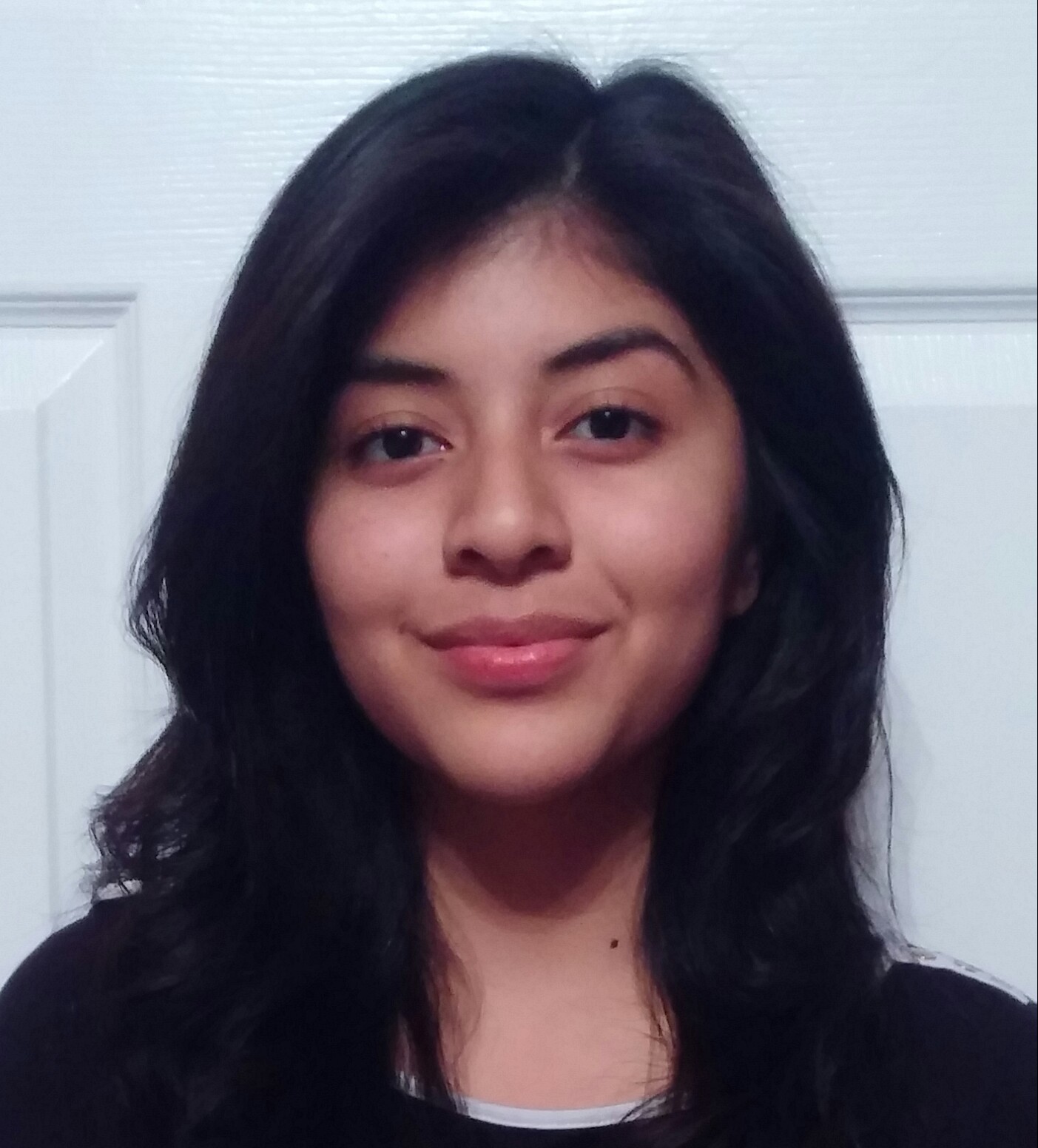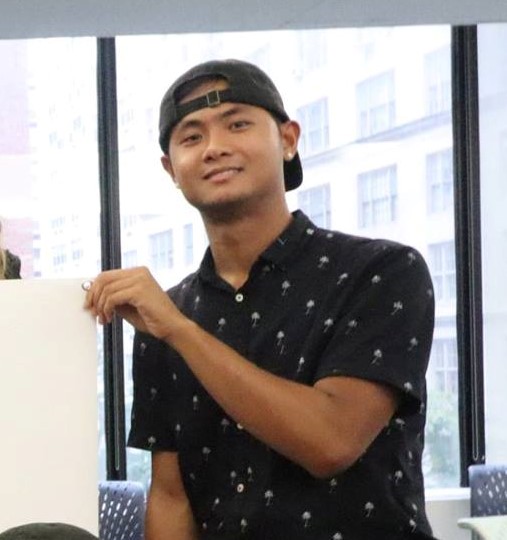Archive for the ‘Assembly District’
I am finishing my final year as a Teaching English as a Second Language major with a minor in Spanish. After Cortland I plan on moving back to Columbia to be an English professor.
I do receive some financial help from the Pell Grant, but I still have to work year-round to cover the other expenses, like all of the textbooks I need for my classes. I typically work full-time in the summer months, and I also work at Neubig Dining Hall between classes to get by. As far as food goes, I do have a meal plan that I have to pay for out- of pocket, but I also work in one of the dining halls so I’m not a big fan of working around the same food I have to eat.


I am currently in my final year at SUNY Cortland as a Spanish and Teaching English as a Second Language double major. The only financial aid I qualify for is like $50 from TAP, which really doesn’t cover anything. In the summer, I work full-time as a secretary to help cover my college expenses, like room and board and tuition.
I don’t have time during the school year to work because of how demanding my majors are. Also, I have to drive myself to and from my observation hours. That can get really expensive, but I still have to pay for that out of pocket on top of everything else.
I have a meal plan but the food and the hours for dining halls are so ridiculous that I normally eat off campus, not to mention the food on campus is more expensive than off-campus food! I think we need to have fully funded SUNY so we don’t have debt until we die and won’t affect our credit scores for the future when we really need them.


Due to advisement I don’t expect to graduate on time. I just kind of advised myself and just signed up for the classes that I thought I needed to take, but then one of my classes didn’t fit my degree. So suddenly I wasn’t full time and also wasn’t eligible for TAP anymore.
There are not enough advisers, there are too many kids. If your issue is solvable at the main desk the main desk will help you, but beyond that – especially if you’re not a freshman – they will just help you the best way they think they can, but they won’t assign you to an adviser. I asked for an adviser, and the main desk person asked ‘what’s your problem?’ instead of actually scheduling me with an adviser.


I am an Accounting and Finance major. I have had more trouble getting into my accounting classes, not my engineering (transferred from engineering to accounting). I tried to sign up 2-3 weeks before classes started and one of my classes was closed already. So I had to drop to a part-time course load this semester and hopefully it’s open the next one.
It hasn’t been easy finding an adviser. I went up to the accounting business finance department and I was greeted by a secretary and I was trying to get advisement and she’s like we don’t really do that here… I talked to a professor and he was like, “you know, I’m not really an adviser,” and he directed me to go online and find the information there.
I’ve needed other services as well like mental health. I did go a couple times to the counselors. They were very nice to me but they really are there to just give you a referral. They did give me a good referral…but I had to pay for it out of my own pocket. It was expensive. If there were people who would do that here, it would help students a lot, financially.
In terms of physical space in our classes, I have been in a lot of situations where the teacher would give up his desk and people would sit at their desk and the professor just stands up and lectures the whole time. When I first signed up here – I was trying to go to class in one of the elevators [but it malfunctioned and] spit me out into a locked maintenance closet and I was sitting in there for like 20 minutes banging on the door. I eventually had to call 911 and the firefighters came up and opened the door. There were 10 firefighters and NYPD standing outside. Some of these elevators have been out of service for who knows how long.
The biggest reason I had to drop out of the electronics engineering program is because there was no support for people in the program. Any support there was you’d have to hopefully be available during your professor’s office hours, and even then they’re not obligated to do that. The lack of support- the lack of readily available tutors on a schedule that I could make is what led me to drop out of that program and seek something that was my second choice, just because there was nobody here.


I am a senior studying International Studies. I will likely be doing advocacy work after college. I get TAP and Pell. Even with financial aid, I still need three jobs to pay for food, textbooks and other expenses. I’m a dog walker, a nanny, and I also clean.
If I didn’t receive financial aid I probably wouldn’t be in school. My biggest struggle in college is money, just trying to survive day to day.


I am a second semester freshman at Hunter College and currently undeclared because I’m narrowing down which major interests me most. I am trying to graduate college as soon as possible, which means I have to take 15 credits per semester, but that is very difficult when you also have to work and support your parents. I receive financial aid from TAP and Excelsior, but that only covers my tuition and Excelsior only gives me a few hundred dollars. I considered applying for ASAP since it would’ve been very helpful to me, but it is not offered at my college. I have to pay for my other expenses including textbooks, food, and transportation.
In my four people household, my dad is the only one that works full time and I work a part time job two days a week. If I decided to prioritize earning money and worked a couple extra days, I wouldn’t be able to focus on school and graduate on time. I already struggle to pay for food, textbooks, and transportation so if I didn’t receive aid to cover my tuition, I would not be able to go to college at all. In high school, I didn’t have to worry about all these things and all of a sudden, with all of this pressure being put on me, I constantly find myself trying to balance school and work and am left with no time to relax. Taking 5 classes every semester and also working is too much to handle and as a result, I am concerned that I won’t be able to do well in school or graduate on time.
We need a fully funded CUNY because many students depend on it. New York City is filled with low-income students and families who choose CUNY because it is advertised as a more affordable option, when in reality it is not. So far, my biggest challenge with being a CUNY student has been financial aid. If all my college expenses were paid for and covered by the government, I would be able to focus a lot more on my education and not have to stress about my finances. CUNY needs to be free again because New Yorkers need free public college now more than ever before.


I go to Hunter College, double majoring in Environmental Studies and Urban Studies, and minoring in Asian American Studies. I would like to preface this by clarifying that although my story will sound oddly similar to other students’ experiences with college, it is not a testament of how poorly we manage our time, but rather it is a multitude of personal and systematic circumstances that make us have to work that much harder to leave college successfully with degrees.
Tuition has been going up every year, yet the quality of education is remaining stagnant. Having been at Hunter for nearly four years, I have seen a decrease in diversity and availability of course offerings throughout the semesters, making it harder to finish elective requirements for my majors. In addition to that, I have lost all my financial aid in the last two years of college, even though FAFSA has been asking for the same tax forms with the same necessary information.
To go from having my financial aid covering the entirety of my tuition to having absolutely no funding, it has been an extreme financial burden. As a full time student with an internship and volunteer extracurricular activities, working a part time job in order to fund my education is another stressor making it all the more difficult to have a successful higher education career. Because of the limited course selections, it makes it more difficult to rearrange my class schedules to allow availability for a part time job.
For my first three years of college, I was working not only as a server three to four days a week, but also as an usher. After attending classes and doing all my extracurriculars in the morning and afternoon, I would have to rush to work, work another seven to eight hours, suffer through immense nightly train delays, and get home at 2 or 3am, only to study and do more schoolwork.
Losing my financial aid and having to pay the ever increasing cost of tuition has compromised not only my educational success in college, but also my mental and physical health. For years, I was only getting two the three hours of sleep maximum, if any at all. In addition to that, there were days I did not have time to meal prep and bring lunch from home, leaving me no choice, but to either buy lunch at school or skip out on meals because I simply could not afford it. This is why CUNY schools need more funding for more opportunities to expand financial aid programs.


I am a junior at Hunter College majoring in Political Science with a minor in Black Studies. I am also the first person in my family to go to college. Right now, my main priority is to graduate as soon as possible so I can get a job to provide for my family and pay my student loans.
I was first a college student at SUNY New Paltz where I was part of the Education Opportunity Program (EOP). One of my main challenges at New Paltz was the price of textbooks. Even though I was working two on-campus jobs, I found myself spending two thirds of my paycheck towards textbooks. I addressed the issue to my EOP advisor, who cared and loved me like their own, and they were able to help me with an EOP book voucher. This voucher helped me to pay for the rest of my school supplies. The downside is that this book voucher is limited. I know that I am one of so many students who struggle with textbook costs.
In the fall of 2018, I transferred to Hunter College. The first thing that comes to mind when people ask me why I transferred is the fact that the cost of tuition at SUNY New Paltz was overwhelming. As a full-time college student, it was impossible for me to get a job that would cover my tuition so every semester I had to take out loans.
I’m now in SEEK. Like EOP, Search for Education Elevation and Knowledge Program (SEEK) helps me with my textbooks and provides me with an advisor. Thanks to the SEEK program, my transition from New Paltz to Hunter College was very smooth. This is why we need true leadership from our representatives to defend and expand opportunity programs.


Starting my college journey has definitely been stressful due to financial complications. I spent my freshman year of college at the University at Albany and then transferred to Hunter College my sophomore year. When I was figuring out how to pay for my freshman year tuition, I found that I was ineligible to receive full financial aid from Pell or TAP. This was difficult because my parents were not financially able to cover the rest of the University at Albany’s $14,000 annual costs.
To make matters worse, as a freshman, you are forced to live on campus your first two years and have an unlimited meal plan (which was the most expensive plan) with no way to opt-out of those choices to pick a cheaper alternative. My parents and I were then forced to take out student loans with extremely high-interest rates that I will not be able to pay off until I am in my thirties. Already in my first year, I was $30,000 in debt with student loans. I could not fathom how much debt I would be in once I graduated from there.
However, due to the introduction of the Excelsior Scholarship I was able to have my tuition paid for by the state. This is why I moved back to New York City to attend Hunter College. I can now continue my education without having to worry about paying for mandatory meal plans or dorming. I am currently a junior at Hunter College majoring in Urban Studies and hopefully double majoring in Sociology. I am still unsure of where I would want to go with my degree, however, I am hopeful for the future.
Although my story seems to have a happy ending, I know that there are thousands of students just like me who are not able to receive this scholarship or any type of aid due to these programs’ strict requirements. These students are then left to endure balancing both work and school. Allowing CUNY to be fully funded would help countless individuals. We all know that higher education is an important asset to survive in this growing economy so college needs to be financially accessible to everyone. No student should be boxed out of the Excelsior Scholarship; every student should have the same experience I’m having. And had free public college been a reality sooner, I would not be $30,000 in debt.


I am currently a senior double majoring in Political Studies and Urban Studies. I do not qualify for the TAP and Pell grants, but I do receive a small scholarship from Hunter since I am part of the Roosevelt Scholars Program. While the scholarship helped me in paying my tuition, I still struggle to make ends meet. I currently work two jobs, totaling to around 40 hours per week, in order to finish paying off my tuition. I also try to help my family out with expenses at home since both my parents are not working.
Since I work two jobs, I find it hard to make time to focus on my studies. There have been countless times where I had to choose between calling off for work in order to study for a test and risk losing my job, or to go to work, pull an all-nighter to study and hope that I studied enough to do well in the class.
If I had a larger scholarship, I would not have to work 40 hours a week. Instead, I could focus more time on my studies and other opportunities that would help me in developing my future.






